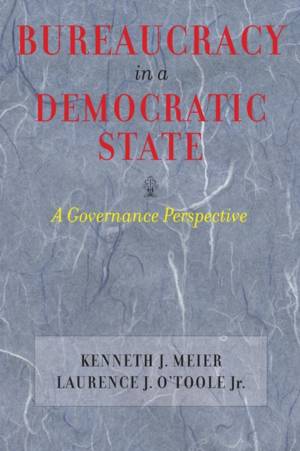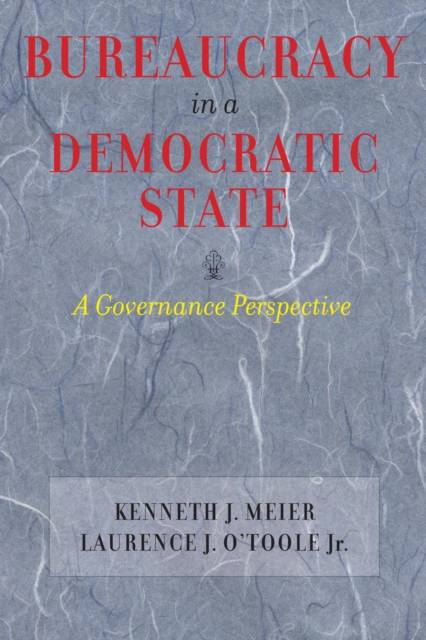
- Afhalen na 1 uur in een winkel met voorraad
- Gratis thuislevering in België vanaf € 30
- Ruim aanbod met 7 miljoen producten
- Afhalen na 1 uur in een winkel met voorraad
- Gratis thuislevering in België vanaf € 30
- Ruim aanbod met 7 miljoen producten
Bureaucracy in a Democratic State
A Governance Perspective
Kenneth J Meier, Laurence J O'TooleOmschrijving
Here, Kenneth J. Meier and Laurence J. O'Toole Jr. present a timely analysis of working democracy, arguing that bureaucracy--often considered antithetical to fundamental democratic principles--can actually promote democracy.
Drawing from both the empirical work of political scientists and the qualitative work of public administration scholars, the authors employ a "governance approach" that considers broad, institutionally complex systems of governance as well as the nitty-gritty details of bureaucracy management. They examine the results of bureaucratic and political interactions in specific government settings, locally and nationally, to determine whether bureaucratic systems strengthen or weaken the connections between public preferences and actual policies. They find that bureaucracies are part of complex intergovernmental and interorganizational networks that limit a single bureaucracy's institutional control over the implementation of public policy. Further, they conclude that top-down political control of bureaucracy has only modest impact on the activities of bureaucracy in the U.S. and that shared values and commitments to democratic norms, along with political control, produce a bureaucracy that is responsive to the American people.
Specificaties
Betrokkenen
- Auteur(s):
- Uitgeverij:
Inhoud
- Aantal bladzijden:
- 200
- Taal:
- Engels
Eigenschappen
- Productcode (EAN):
- 9780801883576
- Verschijningsdatum:
- 1/08/2006
- Uitvoering:
- Paperback
- Formaat:
- Trade paperback (VS)
- Afmetingen:
- 154 mm x 230 mm
- Gewicht:
- 276 g

Alleen bij Standaard Boekhandel
Beoordelingen
We publiceren alleen reviews die voldoen aan de voorwaarden voor reviews. Bekijk onze voorwaarden voor reviews.











